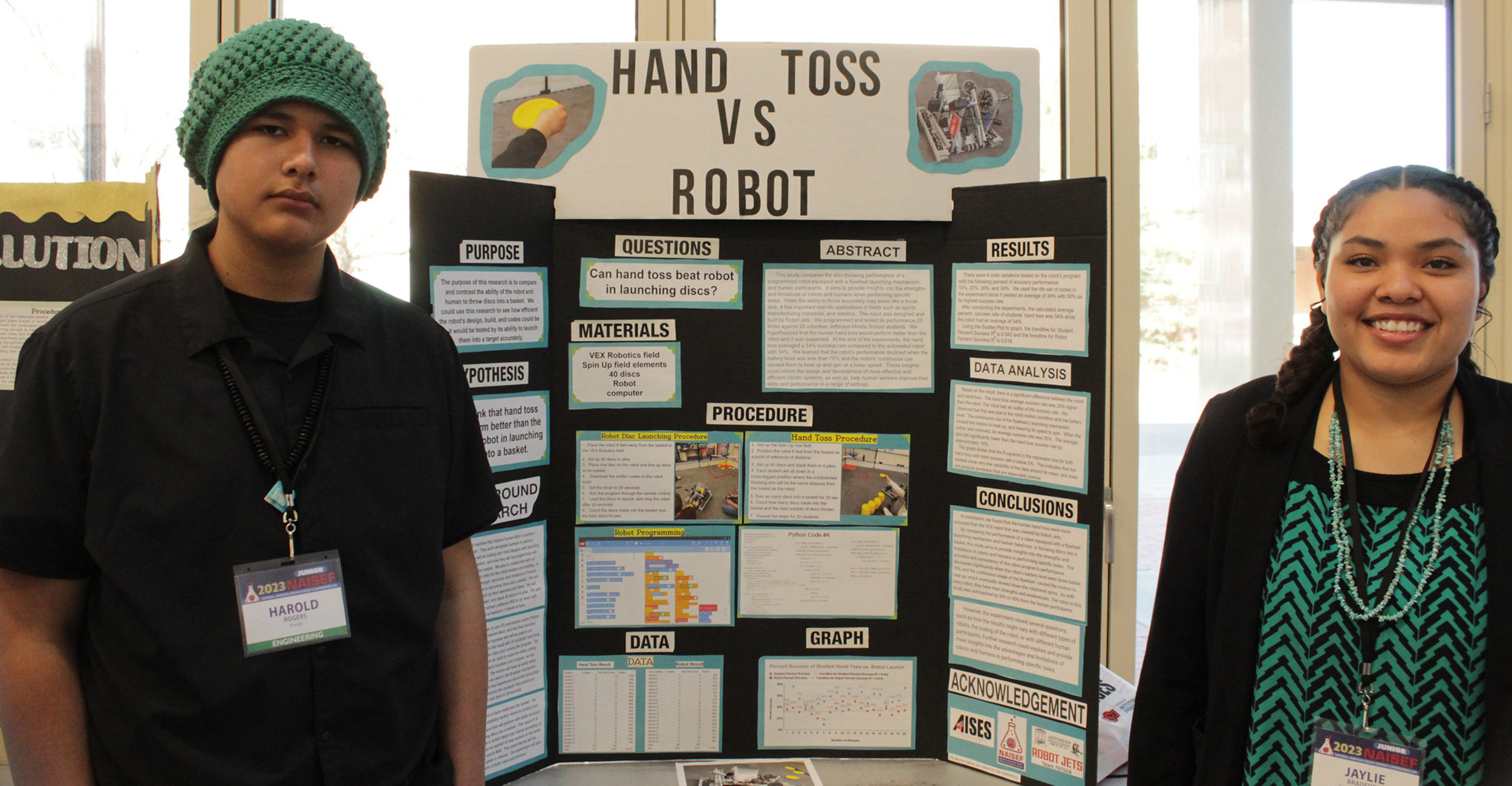
- Details
- By OSU
The Oklahoma State University-Stillwater campus invites Native American students, educators and families participating in science, technology, engineering and mathematics education to several events in April.
The American Indian in Science and Engineering Society Region 4 Conference will be on April 5-6; the National American Indian Science and Engineering Fair on April 6; and First Nations Day on April 4.
AISES is a national organization for native representation in STEM with members from pre-college, college and professional STEM fields. Its vision is for "the next seven generations of Native people to be successful, respected, influential, and contributing members of our vast and ever-changing global community." The AISES Region 4 conference is hosted by the OSU-AISES college chapter. Pre-college students and families are encouraged to register for free by April 4. See the full schedule with times for meals and keynote speakers.
NAISEF is a competitive science and engineering fair for indigenous youth (middle school and high school students) from across the nation hosted by AISES, the Oklahoma Water Resources Center, and College of Engineering, Architecture and Technology K-12 programs. The event is at the ENDEAVOR Lab and parkingis free and open to the public in lots 10 and 6 on Saturday. Educators interested injudging/volunteering or attending the educator lounge and awards dinner should register for free by March 18throughZfairsor contact Chloe Smith, NAISEF director ([email protected]).
American Indian Awareness Week is hosted by theCenter for Sovereign Nations. There are many events beginning March 31 and culminating on April 6 with the Mr. And Miss. American Indian OSU Pageant and Graduation Honoring Ceremony. On April 4 from 10 a.m.-2:30 p.m., high school students can register to experience First Nations Day by connecting with OSU students, visiting the Center for Sovereign Nations, touring campus, and learning more about admission and scholarship opportunities unique to them.
Help us defend tribal sovereignty.
At Native News Online, our mission is rooted in telling the stories that strengthen sovereignty and uplift Indigenous voices — not just at year’s end, but every single day.
Because of your generosity last year, we were able to keep our reporters on the ground in tribal communities, at national gatherings and in the halls of Congress — covering the issues that matter most to Indian Country: sovereignty, culture, education, health and economic opportunity.
That support sustained us through a tough year in 2025. Now, as we look to the year ahead, we need your help right now to ensure warrior journalism remains strong — reporting that defends tribal sovereignty, amplifies Native truth, and holds power accountable.
 The stakes couldn't be higher. Your support keeps Native voices heard, Native stories told and Native sovereignty defended.
The stakes couldn't be higher. Your support keeps Native voices heard, Native stories told and Native sovereignty defended.
Stand with Warrior Journalism today.
Levi Rickert (Potawatomi), Editor & Publisher

